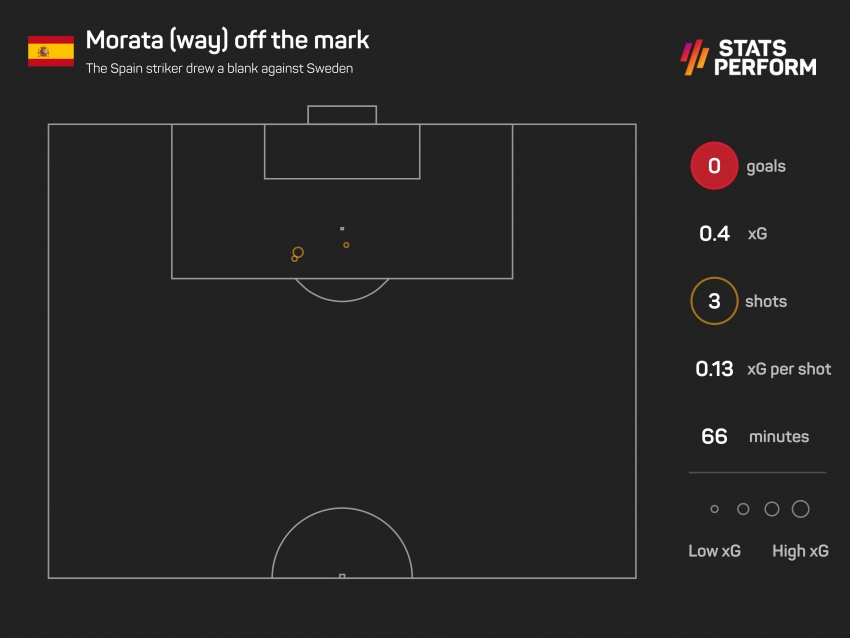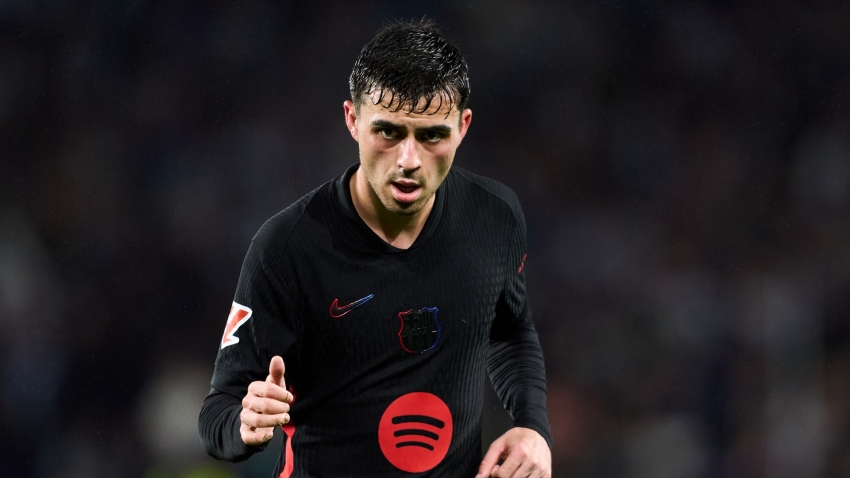We've wondered throughout the build-up whether Spain are realistic contenders to win Euro 2020. After Monday's goalless draw with Sweden, it feels like we're no closer to an answer.
La Roja began their quest for a record fourth European Championship title in the hot evening air of Seville's La Cartuja stadium, the sparse crowd in fine voice, the players looking sharp, their early passing as crisp as Luis Enrique's brilliant white shirt.
Yet so soporific was the heat, humidity and patient midfield build-up that, come the 90th minute, you'd have forgiven every fan in the stands for nodding off.
That's not to say this was a poor performance from Spain. Rather, it was what we have come to expect over the past 15 years: authority in possession bordering on totalitarian, swarming opponents on the rare occasion the ball got away. Sweden completed two passes in the Spain half in the opening 20 minutes and ended the contest with 14.9 per cent of the ball, easily the lowest recorded figure at this tournament since at least 1980. Unfortunately for Spain, they never looked uncomfortable.
It was very similar to the goalless draw with Portugal in the warm-up game in Madrid. It also bore a likeness to a match almost exactly eight years ago, when Vicente del Bosque's side started their Confederations Cup campaign against Uruguay in which they had 92 per cent of the ball in the first nine minutes.
The difference that day was the passing had a purpose. They scored twice but should really have got more, and they only conceded through a spectacular Luis Suarez free-kick. How Luis Enrique would love to have his old Barcelona striker in this side.
These days, there is no Xavi, Andres Iniesta, Xabi Alonso or Cesc Fabregas in midfield, no roving David Silva and David Villa in attack. It is accepted that this Spain can't do things in quite the same way as that remarkable squad that won consecutive European Championships either side of the 2010 World Cup. They're not expected to play the same way.
The problem here was that they seemed to try.
Spain completed 419 passes in the first half alone, the highest figure in the opening 45 minutes of a European Championship game since at least 1980, but conjured only three shots on target. Alvaro Morata wasted the best opening, skewing a shot wide after a rare mistake in the redoubtable Sweden rearguard.
In the second half, that shot count dropped to two on target, both of which came in injury time: a soft header from Gerard Moreno and a snapshot from Pablo Sarabia. The clearest chances fell Sweden's way, the excellent Alexander Isak miscuing a strike onto Marcos Llorente and the post, and Marcus Berg somehow scuffing wide with the goal at his mercy.
Again, this was not a horrible display of the kind produced at the 2014 World Cup, when Spain opened with a 5-1 loss to the Netherlands. Their control was practically absolute and, had Morata and Koke shown more first-half composure, the contest could have been over at half-time. As with the Portugal match, when Morata hit the bar in the final seconds, the difference between a win and a draw was slim. This is also the team that put six past Germany last November, so it's hardly the time for panic stations.
The problem is that nobody quite seemed sure what to expect from Spain before these finals, and this was hardly a convincing explanation. Even with Sergio Busquets sidelined and Sergio Ramos watching at home, the ghosts of the old guard permeated this performance – a performance dictated by tradition rather than fresh ideas.































